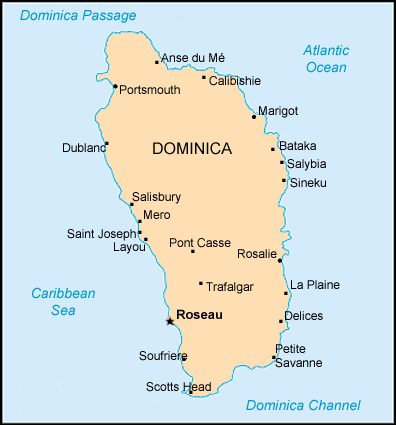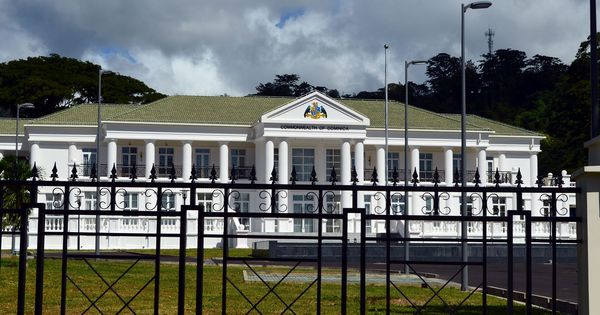A Dominica International Exempt Trust offers many benefits to foreigners wishing to protect their wealth and to provide their family and future heirs with 100 years of estate planning and asset protection.
The International Exempt Trust Act of 1997 provides the rules and regulations for the creation, protections, benefits, and termination of trusts for foreigners in Dominica.
Trustees are controlled by the Trustees Act of 1877 (Amended in 1939).
The Dominica’s Financial Services Unit (FSU) is a department within the Ministry of Finance which regulates trusts and trustees.
Foreigners can create trusts with the settlor, beneficiaries, and all assets located in other countries.
Background
The British established its first colony in the island of Dominica in 1805 and dominated Dominica until its independence in 1978. Since then, Dominica maintained a political system called a “unitary parliamentary republic”. English is one of its official languages along with French and Creole.
Dominica International Exempt Trust Benefits
A Dominica International Exempt Trust can take advantage of these benefits:
• Foreign Domination: Foreigners can create trusts by being the settlors, beneficiaries, with all of the trust’s assets located outside of Dominica.
• No Taxes: Dominica does not impose any types of taxes on their trusts. However, U.S. taxpayers and everyone subject to global income taxation must disclose all income to their governments.
• Privacy: The names of the settlor, protector, and beneficiaries along with identity of assets and their location remain private.
• Confidential: It is a crime for anyone associated with a trust to reveal any information without prior written consent from the trustee.
• Duration: Trusts can last for 100 years.
• Asset Protection: Dominica laws prevents their courts from recognizing other countries’ laws in conflict with Dominica’s. This includes all laws threatening the protection of the trust and its assets.
• Estate Planning: Other countries anti-estate planning laws are not recognized. Families can plan for 100 years of estate planning for their heirs and many generations of future heirs.
• No Audits: There are no requirements for audits or any accounting or financial reports to be filed with the government.
• Fast Formation: Trusts can be formed in one day.
• English: As a former British Colony, Dominica has English as one of its official languages.
Dominica International Exempt Trust Name
Trusts must select a name not being the same or similar to any legal entities in Dominica.
Trusts must identify themselves as such in their name by using the word “Trust” at the end of their names.
Jurisdiction
Jurisdiction remains with the High Court of Dominica in cases where either the trustee is a Dominica resident or any aspect of the trust’s administration occurred in Dominica.
In addition, the claims, rights, or interests established by another countries laws regarding the parties and assets of an international trust will not affect Dominica’s jurisdiction.
Duration
The lifetime for a trust is 100 years. Dominica’s response to the English Common Law Rule against Perpetuity was to establish the 100 year limit.
Registration
Trust are not required to register with the government.
Estate Planning
Dominica laws protect trusts from other countries anti-estate planning laws such as a forced heirship upon the deceased’s estate.
Families can create trusts knowing that over the next 100 years their purposes and benefits for their heirs and many future generations of heirs will be protected.
Asset Protection
The fact that title to all of the settlor’s assets endowed to the trust are held in the name of the trustee provides complete asset protection from the settlor’s and beneficiaries’ creditors.
With jurisdiction over the trust and its assets being in Dominica, creditors must file claims with the High Court. Prior court judgments and court orders against the settlor, beneficiaries, or assets do not have any effect on the jurisdiction of the High Court. Foreign court judgments and orders are not recognized by the courts in Dominica.
Confidentiality
It is a criminal offense for anyone associated with a trust to reveal any information without written authorization from the trustee.
The penalties for violating this law includes imprisonment for two years and a $25,000 USD fine.
Privacy
Although trusts must be registered, the Registrar cannot allow public access to any records without written consent from the trustee.
Purpose Trusts
Non-charitable trusts established with a purpose do not have to identify specific beneficiaries and have the freedom to engage in a wide range of investments to meet the trust’s purposes.
Settlor
The settlor establishes the trust by entering into an agreement with a third party acting as a trustee who accepts transfer of title of the settlor’s properties (assets) like cash, corporate stocks, jewelry, real property, etc. to hold in trust for beneficiaries or a purpose.
Trust Deed
This legal document describes the purpose for the trust, the beneficiaries who benefit from the trust, and identifies initial assets whose title transfers to the trustee in order to manage them and distribute the income and/or assets to the beneficiaries.
In addition, the trust deed provides the powers, duties, and functions of the trustee and protector (if one is appointed) including their appointment, compensation, removal, and replacement. All other important terms related to the administration and management of the trust should be included.
Trustee
The trustee can be either a natural person or a legal entity and may be a resident of Dominica or a citizen of and resident in any country.
Trustees have discretion in the manner of managing and administering the trusts purposes, the assets, income, and benefits for the beneficiaries as set forth in the trust deed.
Beneficiaries
A beneficiary is a natural person residing in another country who receives benefits from the trust. The rights of the beneficiaries are described in the trust deed.
Protector
A trust can appoint a protector to protect the rights of the beneficiaries and/or the purposes of the trust who can be the settlor or a beneficiary or a third party. Protectors can be natural persons or companies residing in and citizens of any country.
Trust deeds provide what powers, duties, and functions protectors have. Protectors often oversee the actions of the trustee with the power to overrule all decisions and actions of the trustee along with removing and appointing new trustees.
Taxes
Trust are exempt from all taxes including corporation, income, gift, inheritance, estate, wealth, capital gains, exchange control taxes, and ad valorem stamp duties.
Note: U.S. citizens and taxpayers must report all global income to their tax agency, as well as all persons subject to their countries taxation of worldwide income.
Accounting
Trusts are not required to file any accounting records, financial statements, annual returns, or conduct audits.
Public Records
Since trusts do not have to register with the government, there are no public records regarding them.
Time to Create
Trust can be formed in one day depending upon the speed of the preparer.
Form a Dominica International Exempt Trust Conclusion
A Dominica International Exempt Trust can take advantage of these benefits: complete ownership, confidentiality, privacy, no taxes, asset protection, estate planning, no required audits or filing of accounting records, and English is one of its official languages.





